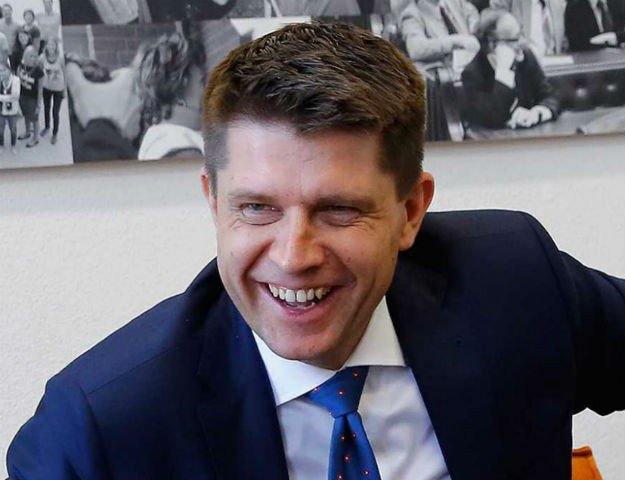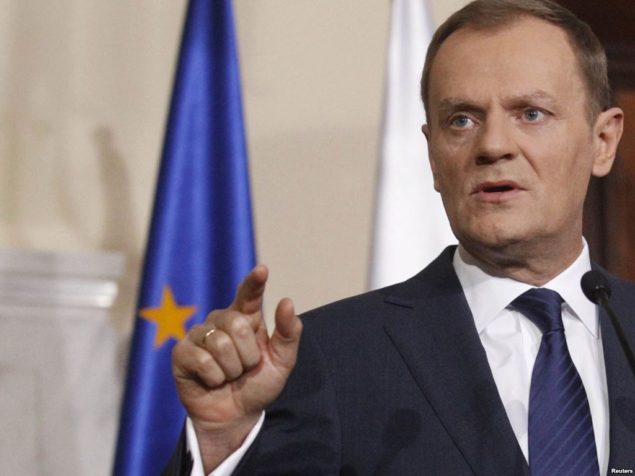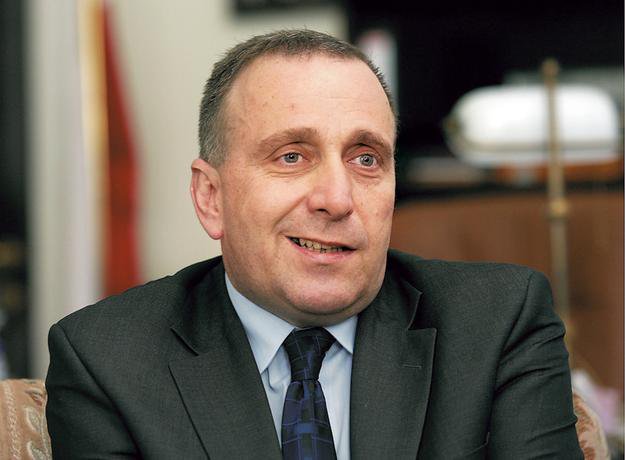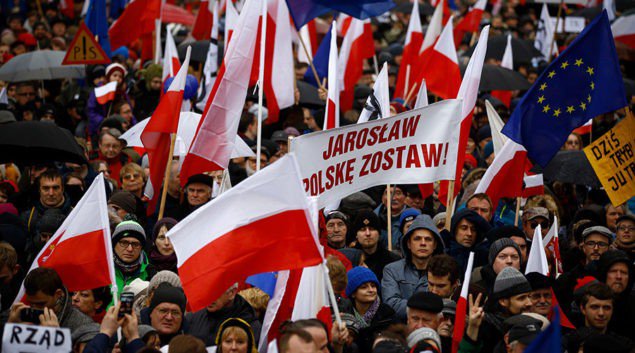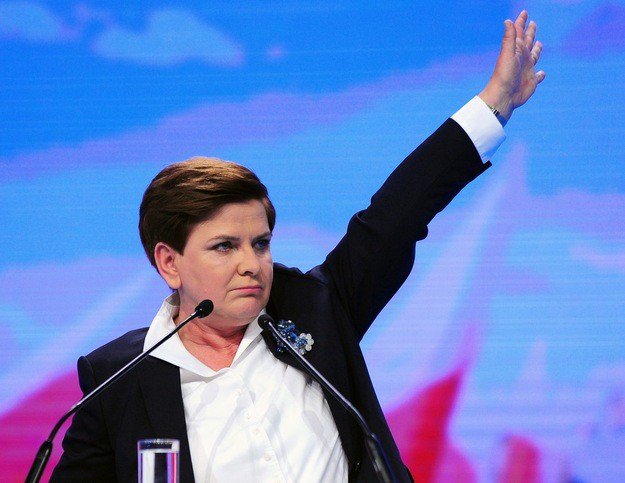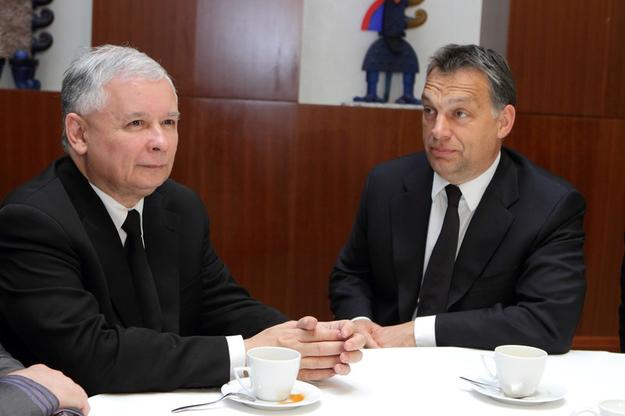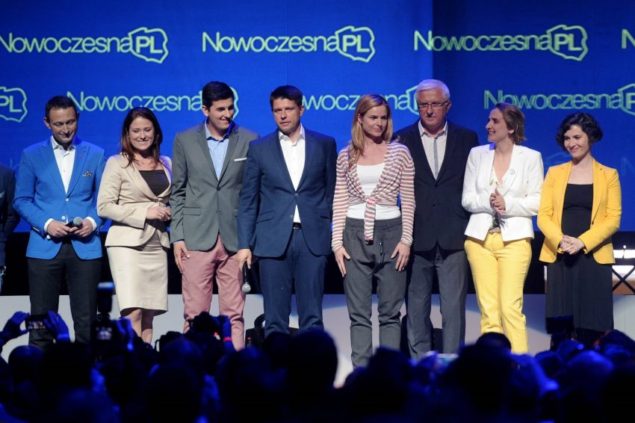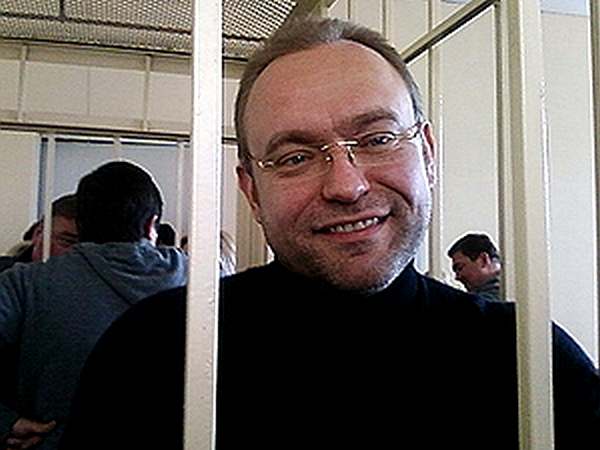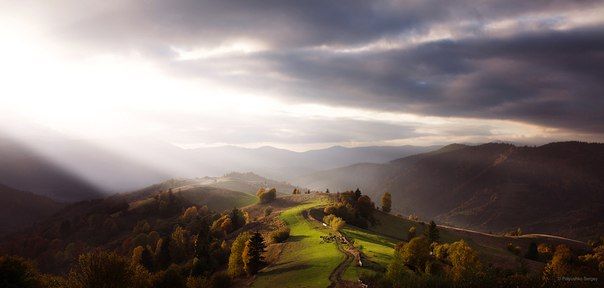Olga Łabendowicz: ‘Freedom in Poland is Under Pressure from ‘Good Change’
22.04.2016What is actually happening in Poland’s political life that makes Brussels feel so disappointed about paths the CEE largest nation has taken? Why the ‘good change’ might not be so good in the outcome and why CEE conservative leaders meet in taverns? How come liberal ideas reminding of freedom’s importance became once again up-to-date in Poland?
To make sense of the above, we’ve talked to Olga Łabendowicz, who is the Editor-in-Chief of 4liberty.eu Review– a magazine devoted to economic, political and social issues in the CEE states and Coordinator of 4liberty.eu Network on behalf of Friedrich Naumann Foundation for Freedom.
Olga, well I do suspect you’ve supported Mr Petru’s party in the last election — and its result has been quite impressive. But what’s your evaluation?
To put it bluntly, Ryszard Petru’s party, the Nowoczesna (‘Modern’), seems to be recently the only voice of reason in the current Polish Parliament. Of course, it is neither a bed of roses, nor it probably ever will be, however, if I were to point at one sensible political party on the contemporary political scene in Poland, that would undoubtedly be the one. Of course my opinion is the result of my political conviction, nevertheless even a person who does not follow politics so closely may easily observe that Nowoczesna is simply reasonable among all the political noise of other parties (or almost a complete silence, in the case of Civic Platform).
Having said all this, we need to be aware of the fact that Ryszard Petru is not a prototypically strong leader. I myself am under the impression that it is rather his party female colleagues who took the lead – and that is yet another good thing. We need strong female politicians in Poland – as a counterbalance to the male ones who are recently either too weak, too self-absorbed with their own agendas or simply too delusional. Speaking of delusions, many Poles believe that Nowoczesna is just a new brand of Civic Platform, which is simply not true – the program of Nowoczesna is far more liberal, both ideologically and economically.
What has actually happened to ‘Civic Platform’? I mean the landslide Conservative victory in the parliamentary and presidential elections?
In my opinion, Civic Platform (PO) became the victim of its lack of a clear ideological and political agenda which later lead to its confusing behavior. After Donald Tusk left the position of the leader of the party to embark on a career as the President of the European Council back in December 2014, the party started the struggle to keep its formerly strong position in Polish politics – because if we like it or not, Civic Platform was strong.
Obviously, it failed miserably if we compare it to its previous results – in the election of October 2015, Civic Platform received 138 mandates as compared to 235 mandates of Law and Justice, while back in 2011, PO received 207 mandates while Law and Justice (PiS) 157. So what has happened since 2011 to influence such a decline in the support?
Already in 2012 the popularity of the party started to drop. There were, however, many factors contributing to this situation and it would be simply unwise to try to pin it down to one particular event that has initiated the downfall of Civic Platform – the disillusionment of the voters may have been related to the infamous signing of the ACTA agreement what was widely protested against by internet users due to lack of sufficient communication campaign, issues with refunded medications, raising the retirement age (a move always unpopular among voters), the return to more conservative ideology after the initial more liberal stance etc. In the end, now Civic Platform seems to struggle to survive – recently there are even talks about the split within the party as some members seem to have personal problems with the current party leader (Grzegorz Schetyna).
Although it remains to be seen whether that will really be the case, it is beyond any doubt that Civic Platform has ceased to matter politically. Its place seems to be successively taken over by the Nowoczesna party which already during the October election received 28 mandates running in the parliamentary elections for the first time and since then being the real opposition in the current Parliament.
Should one call Poland an ‘illiberal democracy’ now, or is it still early to compare it to Hungary?
We do have some serious reasons to be wary of the situation in the country. During the last few months we have experienced in Poland a clear abuse of power by the new government which resulted in a series of “unfortunate” changes, to say the least – blurring the division of powers, limiting the competencies of Constitutional Tribunal and nationalizing the public media by firing virtually all the former staff and management and filling in the posts by political appointments are just the tip of the iceberg. Now the government intends to revive the anti-abortion laws with the strong support of Polish bishops – things are definitely not looking well and the government truly has set out to control almost all aspects of the lives of Polish citizens.
Nevertheless, I would be careful with labeling this new reality as an “illiberal democracy” – it seems that Mr Kaczyński and his entourage still have some “catching up” to make Poland either the second Hungary or “great again”, as Donald Trump would put it. Let’s just hope that we will not go that far. There are two beacons of hope that such a scenario will not occur: one is the European Union (although I do not think that simply rebuking the Polish government will do wonders); the second are the bottom-up movements of Polish citizens outraged with the recent developments, which are closely related to the activities of the Committee for the Defense of Democracy (KOD). In the meantime, we should pay close attention to the direction the so-called “good change” that is gradually introduced in Poland takes.
What is to be expected from this new Poland’s government?
What is to be expected of the Law and Justice government? I honestly would rather not say what I’m expecting not to give the government any ideas they do not yet have – if that’s even possible. One thing is certain: the government of Jarosław Kaczyński (because let’s be honest, it is his government in all its aspects) will not rest easy until they finish introducing the “good change”, until they control all aspects of human life in Poland – may it be ideologically, politically or even economically (having already won the hearts of the masses with the PLN 500+ per every second and next child gives them some space to do so). Because Mr Kaczyński knows best what is good for all of us, and that should make us all really cautious already.
During the PO rule Warsaw has seemed to turn into a major player within the EU. What can change now in Poland-EU relationship?
We can already see that the perception of Poland – an economic wonder which surprisingly (even for us) survived the crisis of 2008 with far fewer scratches than the rest of the EU – has already changed. The complete disregard for the Polish rule of law seen on the part not only of the government (which, let’s face it, will always try to force its agenda, no matter what party is in the majority – some parties have simply less scruples) but also the President Andrzej Duda are truly appalling. The person, who shall safeguard the Constitution, who has actually declared during his presidential campaign that it is “his duty to inspire the action, sometimes to reprimand the government or the parliament” – but who now either keeps quiet about the breeching of the Constitution, or nods his head following the orders of the grey eminence.
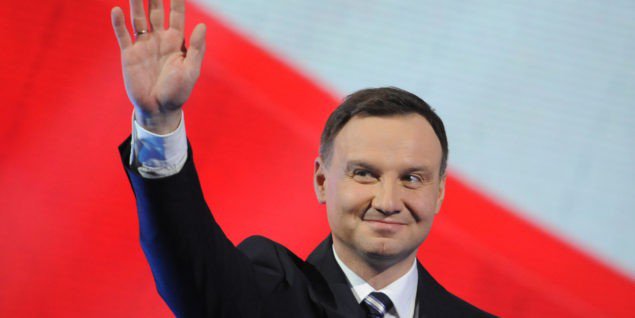
Candidate of Poland’s main conservative opposition party Law and Justice in the May presidential elections, Andrzej Duda, greets supporters during a festive opening of his campaign in Warsaw, Poland, Saturday, Feb. 7, 2015. (AP Photo/Alik Keplicz)
Some part of me may be still shaking head in disbelief that it is truly happening to us. The other part is not surprised at all. And thus, we are being scolded for “leaking our own business to the foreign media” (I think now I’m a part of this precedent as well) what automatically makes us traitors acting against the interests of our state; Prime Minister Beata Szydło faced with the task of defending the changes in Poland in front of the European Parliament behaved disrespectfully, to say the least, dismissing all the charges against the policy of limiting the powers of Constitutional Tribunal; the opinion of the Venice Commission has been treated as a piece of paper not worth even considering, not to mention acting accordingly.
The EU is no longer a thing to aspire to, the West is not an example to follow – all this is associated by the government with the mess related to the poor management of the migration crisis – which, by the way, the Polish government has no intention of getting involved in (with the PM stating that we have no intention to take in any refugees whatsoever).
Summarizing, the relationship between Poland and the EU has definitely changed recently from both perspectives: the Law and Justice has no intention of following the “orders” of the EU, and the EU sees us as an unruly spoiled brat which whimsically starts to act out on its deep desire to be in total control of everything that happens in the country – a desire, which obviously has to be compromised if we are to have a successful cooperation with other EU countries. However, it seems recently that the only country Mr Kaczyński wishes to get closer to is precisely the illiberal Hungary (Jarosław Kaczyński met with Victor Orban privately in the Green Sheep tavern in Niedzica in January 2016 – yes, that’s correct: not the President or the PM, but the leader of the Law and Justice party).
What is Polish Libertarianism about — if any?
I think it is more valid to talk about liberalism in Poland, if anything. After a period of a relative decline in the demand for liberalism or libertarianism – related to the relatively peaceful and economically stable situation in Poland (of course, this is to some extent a generalization as we had our share of internal issues) – we currently seem to be facing a revival of the liberal ideas.
To begin with, for the first time we had a liberal party running in the election and entering the Parliament (precisely, the Nowoczesna party of Ryszard Petru). Secondly, the abovementioned Committee for the Defence of Democracy (KOD) is the most visible manifestation of the need of a huge part of the society to defend the ideas of liberalism and the rule of law in the country.
What is the liberalism about in Poland? I believe that now it is all about making the government see that they are not managing an authoritarian regime and proving that it is individual freedoms and equality that truly make our society strong instead of dividing Poles into two opposite camps – the “true patriots” and the “traitors”.
Is this anywhere true, that Poland is obsessed with migrants?
As it usually happens, the worst is the fear of the unknown – that seems to be also the case of the migrants (my it be economic migrants or refugees, Polish government seems to put them all into the same category, which as we all know these people are not). This fear runs so deep that recently in the city of Łódź (the third biggest city in Poland, right in the centre of the country) the nationalists have started foot partols on the streets – which seems even more absurd since they are habitually dining at street food stands serving kebab by the Arabs. We may laugh a bit about this situation but it all boils down to the fearmongering policy of the governing party along with Kukiz’15 (a new strongly populist party which draws on nationalism; 42 mandates in the recent parliamentary elections). After all, the leader of Law and Justice, Jarosław Kaczyński, really did say that migrants will simply bring to Poland diseases. In the light of the ruling politicians continuously catering to this fear, it is no wonder that some part of the population falls for it – and the nationalized media certainly do not help the matters. However, it needs to be said that this is true only for a part of the society (usually the people who are prone to populism and propaganda) – a different part of the society strongly empathizes with the refugees and organizes help (for instance in the form of charity collections). I believe we should really focus on reinforcing the positive measures and of course, remain cautious as regards the violent behavior of some of the incomers, but at the same time not to allow ourselves to fall for the sheer propaganda of fear.
Finally, with your new parliament and government — what is the chance for Eastern policy, namely towards Ukraine and Russia — to be changed?
According to infamous Witold Waszczykowski, Minister of Foreign Affairs (known from his controversial statements about Poland moving forward from the “niggerhood” in reference to the Poland-US relations; or most recently in an interview for Frankfurter Allgemeine Zeitung that “the European nation does not exist”), it is one of the key objectives for Poland to “even out the relations with the Russian Federation as regards including our expectations” while at the same time taking into account the destructive effects of the Russian policy on the neighboring areas.
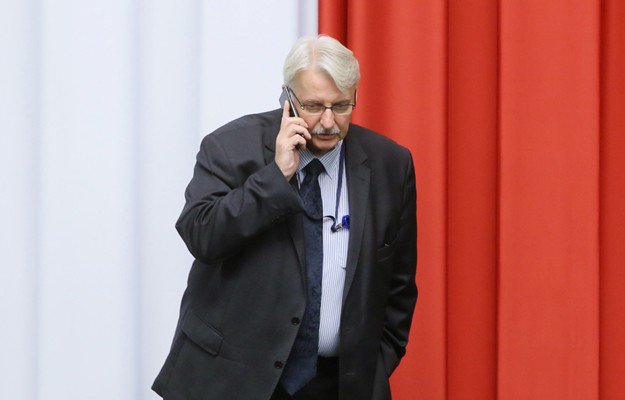
Warszawa, 18.11.2015. Minister spraw zagranicznych Witold Waszczykowski, podczas debaty nad expose, 18 bm. Wieczorem odbêdzie siê g³osowanie nad wnioskiem o wotum zaufania dla nowego rz¹du. (mr) PAP/Pawe³ Supernak ***Zdjêcie do depeszy PAP pt. Rozpoczê³a siê sejmowa debata nad expose premier Beaty Szyd³o***
In relation to Ukraine, the Minister stated during the 9th Forum Europe-Ukraine held in Łódź (Poland) in late January 2016 that Poland will support independent decision-making in Ukraine and will not accept breaking the law and changing neither the political situation, nor the well-established borders by Russia.
However, in the light of recent breaching of the law in Poland by the government itself, I would be careful about expecting too much from this “promises” – although of course (at least I choose to believe so), Poland will try to assist Ukraine in retaining an independent and well-off state, at the same time maneuvering to sustain relatively good relations with Russia, it may turn out that the troubled situation in Poland will effectively keep us from engaging in the matter. After all, populists have always been good with words, not so much with action.
Max Mykhaylenko
Russian-language version will soon be available at Vlast Deneg Magazine
The author extends his deepest gratitide to the ‘Quadrivium’ for creating new contact opportunities with regard to Ukraine’s European integration process.

